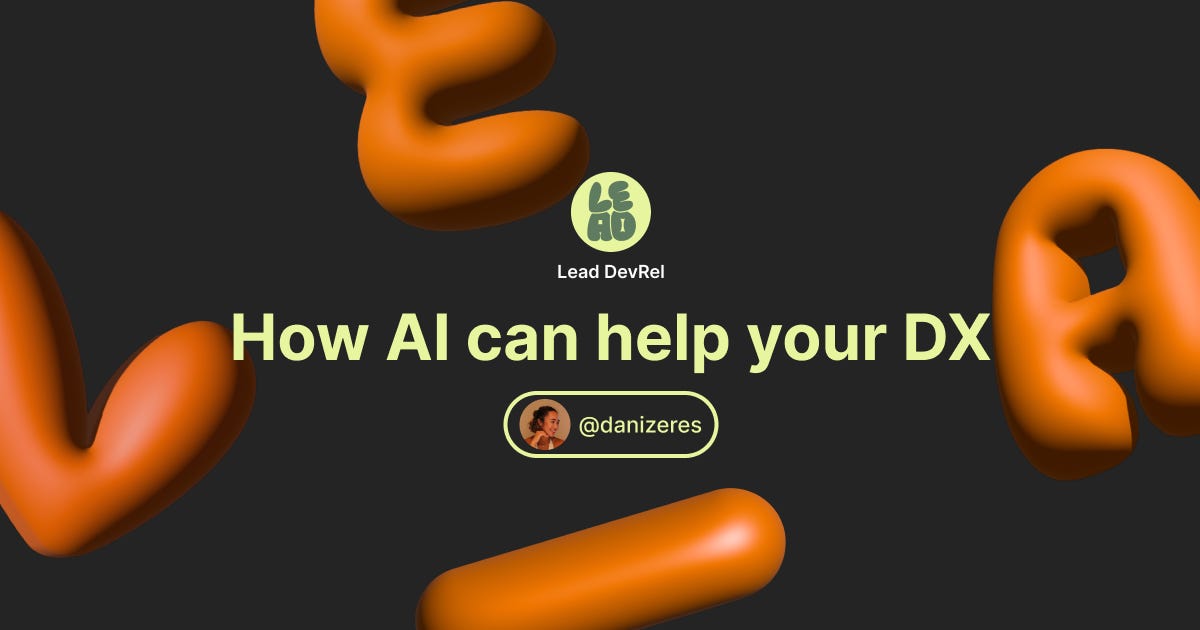How AI can help your developer experience
It’s 2am. You're coding. Building the next big thing in AI. Thinking web3 identity decentralization or just trying to center a div and…… you hit a blocker.
Maybe it's a weird bug or you just discovered that the SDK you’ve been using has been updated and you can’t trust its docs.
Enter AI for developer documentation.
It's like having a super-smart friend (we all have those, huh?) who's read every doc ever and can spit out answers as you ask them. GitHub's Copilot for Docs is leading the charge here, providing AI-generated answers to your burning questions about code, frameworks, and all things dev.
This AI-powered approach is all about making your life easier. No more combing through forums or digging deep into Stack Overflow at 4am. Just ask, and you get answers that are to the point and super relevant. It's about getting you back to coding faster, without the headache of traditional doc-diving.
The cool tech behind it
At the heart of AI are large language models (LLMs), trained on mountains of code and documentation. They're not just smart; they're like the collective brainpower of the global developer community, distilled into a handy tool.
These AI systems understand context, can interpret your queries, and even offer code snippets and examples that are directly applicable to your project.
What makes this tech especially neat for devs is its ability to adapt to your specific needs. Working on a React project? The AI can tailor its responses to React-related queries. Wrestling with Python? It's got you covered there too. This level of individuality created by the possibilities created in AI means you're getting not just any answer, but the right answer for your specific problem.
OK, time to get started
Hooking your day to day or your applications into the AI-driven narrative can be as simple as accessing an API or integrating a plugin into your favorite IDE.
For GitHub's Copilot for Docs, it's about leveraging the GitHub ecosystem, making it a seamless part of your development workflow. The key is to interact with these tools as you would with a human expert… clear, concise questions usually return the best answers.
Experiment with different tools to find the one that fits your workflow and needs. And remember, as smart as these AI systems are, they're not infallible. Always double-check the solutions and understand the "why" behind the answers. It's about using AI as a tool in your developer toolkit, not as a support shoulder.
Let’s talk about day to day use, shall we?
Imagine you're building a decentralized app on the web3 space for a particular chain, and (suddenly 👀*)* you're stuck on a smart contract issue. Instead of skimming through countless pages of developer documentation, blog posts or video tutorials, you ask that particular chain (infrastructure)’s AI tool and get a straightforward explanation and a sample code snippet.
Or maybe you're optimizing your website for performance, and the AI companion suggests a technique specific to this framework that you didn’t know or couldn’t remember. These tools are also great for learning new technologies, offering bite-sized, relevant pieces of information and examples as you explore new coding territories.
Let’s be real, the beauty of AI in dev docs is its ability to make learning and problem-solving more efficient. Whether you're a seasoned dev or just starting, it's like having a support center or teacher available 24/7, ready to help you grow your skills and tackle challenges head-on.
Thinking ahead
AI in developer documentation is changing the game, making the vast world of coding knowledge more accessible and navigable. It's an exciting time to be a developer, with tools at our fingertips that empower us to build better, solve problems faster, and learn continuously.
Tailoring the language for a developer audience means focusing on how AI can practically support their coding journey, break down concepts around frameworks and new technologies, and encouraging them to learn faster and integrate your stack in their daily workflow.
Resources





